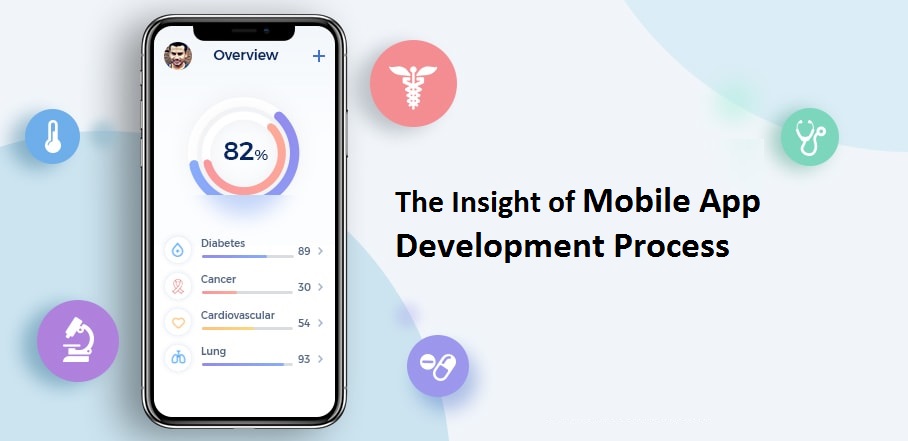Surprising Insights into the Android App Development Process
 TechnBrains
TechnBrains
Mobile app development, particularly in the realm of Android, is a dynamic and ever-evolving process. Beyond the lines of code and design elements, some surprising insights and nuances can significantly impact the success of an app. In this blog post, we'll delve into some unexpected aspects of the Android app development process, shedding light on factors that developers may not always consider. From user psychology to emerging trends, these insights can reshape the way we approach Android app development.
User-Centric Design Beyond Aesthetics
While a visually appealing interface is crucial for user engagement, a truly successful app goes beyond aesthetics. User-centric design involves understanding the target audience, their preferences, and the context in which they'll use the app. Surprisingly, this goes beyond geographical and cultural considerations; it also involves understanding the psychology of user behaviour. Crafting an intuitive and user-friendly experience can make or break the success of an Android app.
Android App Development: Crafting an Experience, Not Just an Interface
I. The Impact of Load Time on User Retention
In the fast-paced world of mobile apps, users expect instant gratification. The load time of an app is a critical factor that can influence user retention. Surprisingly, even a few seconds of delay can lead to users abandoning the app. Developers must prioritize optimizing load times through efficient coding, minimizing unnecessary features, and utilizing content delivery networks (CDNs) to ensure a swift and seamless user experience.
II. Navigating the Fragmentation Challenge
Android's open-source nature has led to a diverse ecosystem of devices with varying screen sizes, resolutions, and hardware capabilities. Navigating this fragmentation challenge is a surprising aspect of Android app development. Developers must design and test their apps across a spectrum of devices to ensure compatibility. Embracing responsive design and utilizing device-specific features judiciously are key strategies in overcoming the fragmentation hurdle.
III. Balancing Features and Performance
While it's tempting to pack an app with a plethora of features, there's a delicate balance between functionality and performance. Surprisingly, users prioritize a smooth and responsive experience over a multitude of features. Striking this balance requires careful consideration of the app's core purpose, user expectations, and the technical capabilities of the target devices. Feature-rich apps are valuable, but not at the expense of performance.
IV. The Importance of Beta Testing
Beta testing is a crucial phase that some developers surprisingly overlook. Launching an app without thorough testing among real users can lead to unforeseen issues and negative reviews. Beta testing allows developers to gather valuable feedback, identify potential bugs, and make necessary improvements before the official release. Engaging a diverse group of beta testers can provide insights into how the app performs in various real-world scenarios.
V. Security as a Non-Negotiable Priority
In an age where cyber threats are rampant, the security of mobile apps is a surprising concern that cannot be ignored. Users entrust apps with sensitive information, making security a non-negotiable priority. Encrypting data, implementing secure authentication mechanisms, and staying abreast of the latest security standards are integral parts of the Android app development process. Prioritizing security not only protects users but also enhances the app's credibility.
VI. The Impact of App Store Optimization (ASO)
App Store Optimization (ASO) is a lesser-known but powerful aspect of Android app development. Surprisingly, it's not just about creating an eye-catching app icon and a compelling description. ASO involves strategic keyword placement, optimizing app metadata, and encouraging positive reviews. A well-optimized app store presence can significantly improve visibility, leading to increased downloads and user engagement.
VII. Adapting to Emerging Trends
Staying ahead of emerging trends is crucial in the competitive landscape of Android app development. Surprisingly, some developers may underestimate the impact of staying informed about the latest technologies, design trends, and user preferences. Whether it's adopting new programming languages, incorporating augmented reality, or embracing dark mode, being attuned to emerging trends can give an app a competitive edge.
VIII. Post-Launch Support and Continuous Improvement
The development process doesn't end with the app launch. Surprisingly, post-launch support and continuous improvement are integral to an app's long-term success. Monitoring user feedback, addressing issues promptly, and releasing regular updates keep the app relevant and competitive. A responsive development team that actively listens to user input can turn an app into an evolving, user-centric product.
Conclusion
The Android app development process is a multi-faceted journey that extends beyond coding and design. Surprising insights, from the psychological aspects of user behaviour to the impact of load times and the challenges of device fragmentation, shape the success of an app. As you embark on your Android app development endeavours, consider these unexpected factors that can make a significant difference.
What surprising-insights have you discovered in your Android app development journey? Share your thoughts and experiences in the comments below. Let's continue the conversation and learn from each other's perspectives. Happy coding!
Subscribe to my newsletter
Read articles from TechnBrains directly inside your inbox. Subscribe to the newsletter, and don't miss out.
Written by

TechnBrains
TechnBrains
TechnBrains is a Custom Software Development and Mobile Application development company based in Texas building high-quality mobile apps for IOS and Android and responsive web designs for driving success